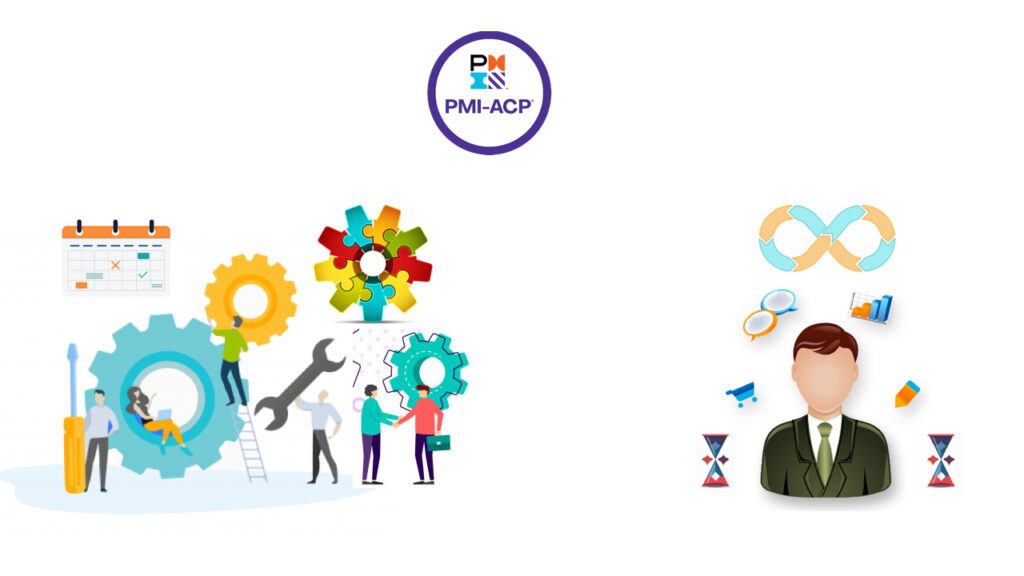
PMI-ACP Practice Exam will help you to prepare for the PMI ACP certification offered by the Project Management Institute (PMI.ORG). PMI-ACP focuses on the Agile project management principles and tests Agile practitioners’ knowledge of Agile project methodologies, Agile methodologies, the utilization of Agile tools and techniques, and to implement of lean management for projects without limiting them to a specific Agile framework. PMI requires candidates to have working knowledge in a broad set of methodologies such as Scrum, XP, Lean, Kanban, Test-Driven Development, etc. The key difference between PMP and PMI-ACP is that PMP recognizes the skills and experiences of project managers while PMI-ACP recognizes that of project practitioners. Purchase Techagilist or Udemy Paid Membership to have access to a pool of 750 PMI ACP Practice Exam Questions with helpful explanations.
Key Features & Benefits of PSM Practice Exam Simulator
- High-quality questions: These simulated exams are designed to reflect the difficulty and complexity of the actual PSM certification exam.
- Realistic exam simulation: These simulated exams simulate the actual PSM certification exam as closely as possible.
- Detailed feedback and explanations: These simulated exams provide detailed feedback and explanations of why an option is correct or the remaining options are incorrect for each question.
- Instant results & instructor support: These simulated exams provide instant results after each exam. Instructors are available on a demand basis.
- Benefits of PSM Exam Simulator: Identifying knowledge gaps, Building confidence, Simulating real exam conditions, and Improving time management skills.
PMI-ACP Practice Exams by Domains
- Domain I. Agile Principles and Mindset (9 tasks) – 16% ~19 questions among 120 Exam questions
- Domain II. Value-Driven Delivery (4 sub-domains, 14 tasks) – 20% ~24 questions among 120 Exam questions
- Domain III. Stakeholder Engagement (3 sub-domains, 9 tasks) – 17% ~20 questions among 120 Exam questions
- Domain IV. Team Performance (3 sub-domains, 9 tasks) – 16% ~19 questions among 120 Exam questions
- Domain V. Adaptive Planning (3 sub-domains, 10 tasks) – 12% ~14 questions among 120 Exam questions
- Domain VI. Problem Detection and Resolution (5 tasks) – 10% ~12 questions among 120 Exam questions
- Domain VII. Continuous Improvement (Product, Process, People) (6 tasks) – 9% ~ 11 questions among 120 Exam questions
PMI-ACP Practice Exam Practice Mode Questions
The purpose of this practice exam in Practice Mode will allow you to test your knowledge before appearing for certification. Therefore each time you will get a random set of 20 questions out of 50+ and the results will be displayed as you answer questions. Best wishes and good luck with this Exam.
REOPEN or REFRESH this page if you want to retrieve the next set of 20 QUESTIONS.
Number of Questions: 20
PSD Focus Areas
|
Purchase PMI-ACP Practice Exams (750 Questions – 1 set of 150 questions and 5 sets of 120 Questions) Click Here for UDEMY or TechAgilist Paid Membership.
Recommended Reading
- Scrum.org
- PSM I – PSM Practice Exam Practice Mode Questions
- PSM II – PSM II Practice Exam Practice Mode Questions
- PSPO I – PSPO Practice Exam Real Mode Questions
- PSPO I – PSPO Practice Exam Practice Mode Questions
- PSPO II – PSPO II Practice Exam Practice Mode Questions
- PSD – PSD Practice Exam Practice Mode Questions
- SPS – SPS Practice Exam Practice Mode Questions
- Scrum Alliance
- PMI
Disclaimer: “PMP”, “PMBOK”, “PMI-ACP” and “PMI” are registered trademarks of the Project Management Institute, Inc.

